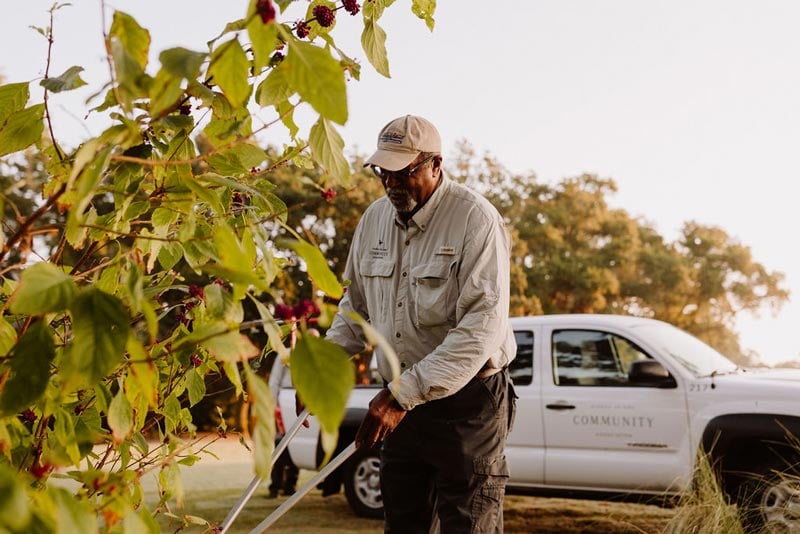Apr
27
2022

From The Blog
A New(ish) Judge on the Town Bench
contributed by feature writer sue schaffer
After a 50-year legal career primarily in family law, wealth succession planning for businesses and corporate law, garnering dozens of accolades and “top lawyer” ratings along the way, Sanford “Sandy” Ain has switched gears and decided to try his hand in the judiciary. He was sworn in for a three-year term as chief municipal judge for the Town of Kiawah Island in January, 2021, and loves his new line of work. He calls it “the most fun and rewarding experience I have had since I began practicing law.”
As one of about 200 municipal courts in South Carolina, Kiawah’s court is independent of the town but staffed and financed by it. Its jurisdiction includes Freshfields and the roundabout there, the Kiawah Island Parkway, and all of Kiawah (inside the security gates and off Beachwalker Drive). The court generally handles criminal (not civil) cases with maximum penalties of $500 and/or 30 days imprisonment.
Judge Ain characterizes his legal career as one of “taking care of people and their companies.” Humorous and gregarious, he is warm and friendly to everyone he meets and sometimes forms lasting friendships and long-term business relationships with his clients. He attributes his success to “a combination of working incredibly hard, treating every client as if they were my only client, and a measure of good luck.”
The good luck began in the 1970s when he was trying a prominent case that was covered daily in the Washington Post newspaper. His reputation began to grow and he made appearances on CNN, including “Burden of Proof” with Greta van Susteren, and ABC’s “Nightline” with Ted Koppel. He began representing prominent, wealthy people whose cases were the subject of media attention. Eventually the recognition earned him a national reputation as a go-to divorce lawyer for the stars.
Two practices that have served Judge Ain well during his legal career also enhance his work as a judge. First is his belief in gathering as much information as possible, making a decision, and “moving on.” Second is his approach to people. “I like people and enjoy listening to them. I believe in their ultimate goodness,” he says. He treats all people respectfully, and he believes that everyone coming before the bench deserves respect. “Not all judges do,” he notes. He is firm but wants every person to feel heard and fairly treated. “I am not judging you as a person; I am judging your actions. If your actions are inconsistent with the code, there is a consequence.”
Discretion is another characteristic that Judge Ain embraces. He will not name his numerous prominent and public clients, but some have named him, including business magnate Herbert Haft, whose divorce sparked a vicious and public family feud; Monica Tyson, second wife of boxer Mike Tyson; and Washington, DC sports teams owner and hotelier Sheila Johnson. On the bench, Judge Ain also practices discretion and declines to discuss any cases that have or might come before him. In one instance, a fellow golfer began talking about a citation he had, he thought, received unfairly. Judge Ain doesn’t know if the golfer knew about his new job, but he cut the story off abruptly and without explanation: “I don’t want to hear it.”
Judge Ain often empathizes with defendants. “We have all done things we might have done differently, particularly if we knew we could get caught. Sometimes I take the opportunity to lecture people about their behavior. One person destroyed another’s property, and a civilized society doesn’t tolerate that.” He will also look for alternative consequences, such as community service, to avoid marking someone’s life with a criminal conviction.
The transition from one side of the bench to the other was not difficult for Judge Ain, but he did experience some amusing moments. He had to adjust to wearing a robe—and to how he looked in one. He forgot to ask one defendant how they wanted to plead, and he failed to allow another to cross examine the charging officer. But the most challenging aspect for him was judge school, particularly the anxiety of having to take the test at the end. “It’s been a long time since I took a test. I sat through 45 hours of dry classes and studied the South Carolina code. However, having tried as many cases as I have, the content was not difficult for me to master.” He successfully completed the test in less than half the allotted time.
Judge Ain credits the town’s employees and elected officials for some of the ease of his transition and his enjoyment of the work. He commends “the commitment and dedication of the entire group of administrators and clerks,” particularly Clerk of Court Sherry Fortson, who “is instrumental in keeping the court running smoothly and efficiently,” and Town Administrator Stephanie Tillerson. The judge has also assisted the Kiawah Island Community Association, acting as moderator for 2022’s Meet the Candidates event.
Judge Ain still practices law. He began working for his current firm at the end of law school and earned promotion to partner four years later. In 2003, the firm split and he became a principal of Ain and Bank, a position he still holds although he now splits time between that and his Kiawah duties. He is also an educator, teaching courses at the National Family Law Trial Institute in Houston, giving lectures around the country, and writing articles on legal topics.
Despite his judgeship, legal practice and firm management responsibilities, Judge Ain finds plenty of time for recreation. An avid golfer, he plays several times a week. He owns a share of a boat and loves to be out on the water or to spend a day fishing, especially when one of his two sons visits. He lived in the Washington, DC area until becoming a Kiawah resident two years ago and still has an apartment there. His sons’ families, including two grandchildren, bring him back to DC often.
Judge Ain and his wife Miriam honeymooned on Kiawah in 1980 and visited occasionally before they built their first Kiawah house in 2003. They have come to love Kiawah, and Judge Ain sees his new position as “a good way to make a positive contribution to the betterment of society, and to give back to a profession that’s been so good to me.”

